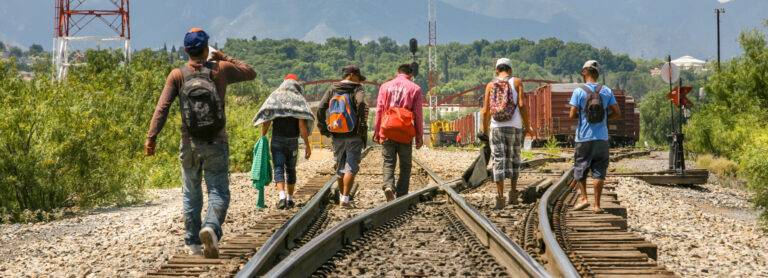The African Union (AU) states that have trade relations with the Russian Federation are concerned about the situation in Ukraine. The reason for their concern is the disruption in the supply of goods, primarily food (grain, maise and sunflower oil) and fertilisers, which they obtain from Russia and Ukraine, as well as the significant increase in the price of these products.
Food shortages could jeopardise the security of Middle Eastern and African countries and cause social unrest and migration waves. Moreover, it comes at a time when many countries in the region struggle with widespread droughts or political problems. Some 18 million people in the Sahel region are currently suffering from hunger. According to the UN, African countries import 44% of their wheat from Russia and Ukraine. According to the African Development Bank, wheat prices have risen by around 45% due to the supply disruption. Senegalese President Macy Sall, who currently heads the AU, has spoken to Russian leader Vladimir Putin about the issue.
Putin is using the issue of food shortages to convince consumer countries that the West is to blame. In his meeting with Sall, he said that the food shortages were caused by the war in Ukraine and Western sanctions, as he has been suggesting for weeks. He blamed the West for the global food and energy crisis and announced that Russia was willing to provide safe passage for ships exporting grain from Ukraine. “We will facilitate peaceful passage and guarantee the safety of arrivals at these ports, as well as the entry of foreign ships and their movement through the Sea of Azov and the Black Sea, in any direction,” he pledged. According to Putin, the shipments could also be secured through other countries – for example, Belarus. In this case, Sall drew attention to sanctions that apply to Belarus as a Russian partner.
Despite the AU’s pledge to remain neutral on the war in Ukraine, the continent is divided on the issue, with 19 out of 54 states failing to condemn Russian aggression at the UN. Nor has there been any meeting with Ukrainian President Volodymyr Zelensky, who has twice asked to address the AU.
Turkey has also come into the picture recently through talks between Russian Defence Minister Shoigu and his Turkish counterpart Hulusi Akar and a meeting between Foreign Ministers Sergei Lavrov and Mevlüt Cavusoglu. The discussions focused primarily on the possibility of creating a secure corridor for grain supplies from Russia and Ukraine. According to Cavusoglu, a corridor between the three countries secured by the UN is a reasonable solution to the situation. At the same time, Turkey supported Russia’s request for an easing of sanctions, which the West considers as one of the obstacles to an agreement. However, Turkish-Russian negotiations without Ukraine’s participation ended in vain, mainly due to Moscow’s unrealistic demands on Kyiv.
President Putin has refused to admit that Russian soldiers are blocking Ukrainian ports in the Black Sea. A likely motive for his rhetoric is an effort to expand trade ties in states where sanctions do not currently constrain Russia. The Kremlin’s actions may also be motivated by a desire to weaken the European Union. Indeed, Putin’s statements blame the West and the EU for the high inflation rate, the shortage of goods, the cost of military and humanitarian aid to Ukraine, and the waves of migration – not only from Ukraine but also from African countries. The outbreak of famine in Africa would lead to massive waves of migration to Europe, which would be more willing to negotiate with Russia and abandon Ukraine’s current support. The triggering of the global food crisis may thus be in Moscow’s direct interest.


